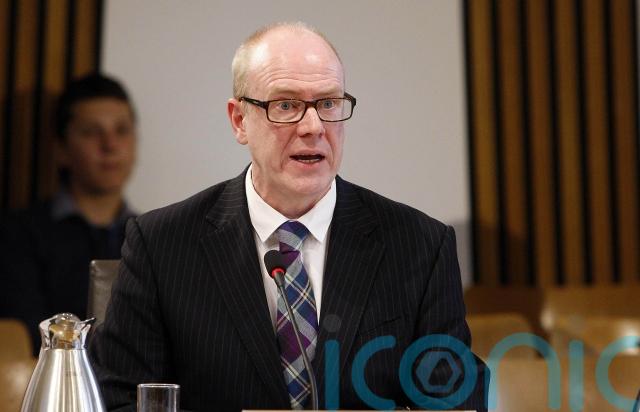
There has been “real progress” in tackling stigma around mental health in the last two decades, but more remains to be done, according to new research.
A poll by See Me and Censuswide found there been a 60 percentage point increase in the proportion of people who say that they would have the confidence to start a conversation with someone about their mental health, up from 24% 20 years ago to 84% today.
It also found that almost eight in 10 (79%) of those questioned agreed that they would have the confidence to talk about their own mental health today, up from just over two in 10 (23%) 20 years ago.
The poll of 1,000 people in Scotland in August also found that 96% of people said they would be willing to support someone who was struggling with their mental health.
The research was conducted to mark the 20th anniversary of See Me, Scotland’s national programme to end mental health stigma and discrimination.
It comes after the Scottish Mental Illness Stigma Study, released by See Me last month, found that people with severe, enduring and complex mental illnesses continue to face stigma – within their families, workplaces and healthcare settings.
See Me director Wendy Halliday said: “The programme’s milestone birthday provides an opportunity to take stock of what has been achieved over the last 20 years.
“We’ve seen real progress in the last two decades, as our latest polling shows, but we know that there are still certain groups and parts of society which continue to face stigma.
“As the programme moves forward, we’ll be doing more work with minority groups, including LGBT+ and (black and ethnic minority) communities, to ensure that everyone feels able to talk about their mental health and seek help when they need it.”
See Me, which is funded by the Scottish Government and managed by the Scottish Association for Mental Health (SAMH) and the Mental Health Foundation, launched as a public awareness campaign in 2002, relaunching as a programme in 2013 to change behaviours as well as attitudes.
One of the programme’s main ways of creating change has been through working with people who have experienced stigma themselves, such as Bridget Dickson, from Peebles in the Borders, who joined See Me as a community champion in 2016.
She said: “I’ve had poor mental health most of my life, and it was like this huge secret that nobody was allowed to talk about.
“Starting with See Me, I suddenly discovered this community where I was allowed to talk about it.
“That just gave me the confidence to go and talk about it with my family and then my friends and then the wider public.”

Gary Macdonald, from Glasgow, has also been involved with See Me since 2016.
He said: “Volunteering with See Me has led to me setting up a men’s mental health and suicide prevention peer support group in Glasgow, Mind the Men.
“We have hundreds of men who come through the doors and it’s helped them to open up about their mental health and challenge stigma and discrimination.”
See Me is calling on people across Scotland to build on the progress so far.
Mental Wellbeing and Social Care Minister Kevin Stewart said: “Over the last 20 years, See Me have driven change in tackling stigma and discrimination around mental ill health.
“They have done this by ensuring that lived experience is at the heart of everything they do. This enables us to make sure that the services we provide work for those they are intended to help.
“The funding of See Me is not only a sign of our trust and belief in their work, but also recognition that tackling mental health stigma and discrimination is a key priority for the Scottish Government.”
Subscribe or register today to discover more from DonegalLive.ie
Buy the e-paper of the Donegal Democrat, Donegal People's Press, Donegal Post and Inish Times here for instant access to Donegal's premier news titles.
Keep up with the latest news from Donegal with our daily newsletter featuring the most important stories of the day delivered to your inbox every evening at 5pm.